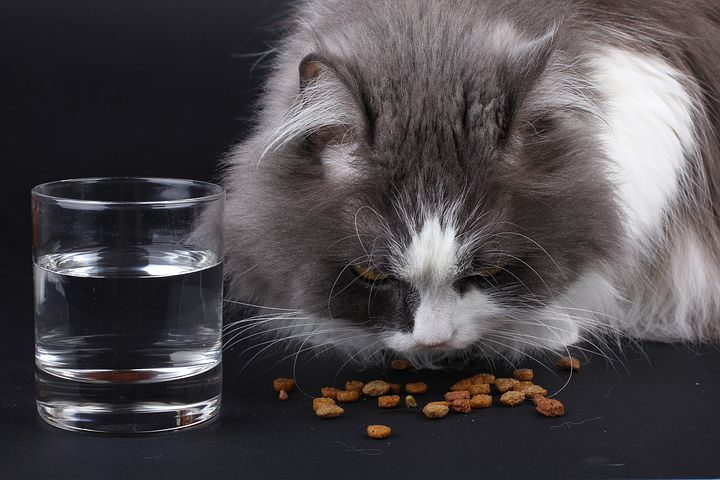Have you ever tried to feed your cat a new diet? Especially if it is different from her usual food? What did she do? People think that what seems palatable to humans will also be enticing for cats. But many cats seem to have very strict preferences about their diets.
As a veterinarian, sometimes a diet change is a part of the therapy I give for certain disease processes, but my cat patients do not always cooperate. Almost every day, owners will share their cat’s quirks and they tell me, “She won’t eat canned food.” If your cat is one of those that only eats dry food, have you ever wondered why?
According to John W.S. Bradshaw in his book, The Behaviour of the Domestic Cat, cats overall seem accepting of new diets and even like variety, but for those that do not, he feels that multiple factors may play a role.
Nurture?
Bradshaw feels that young cats are influenced by the foods that their mother introduced them to as kittens. Many rescued cats are adopted from shelter situations where economics and convenience make dry diets preferable. These animals grew up eating dry foods almost exclusively and their tastes have adapted to prefer it.
Or Nature?
The individual personality of the kitten can also play a role, as Bradshaw thinks that nervous or high-strung kittens are more apt to be suspicious of new foods. This suspicion of new things is called neophobia. Adult cats also experience neophobia and can be very difficult to introduce to new foods. If your cat is used to a certain food type and is not particularly brave and adventuresome, he might refuse to try a new food, even if it smells delicious.
Dry diets are readily accessible and less perishable when left out for house cats while we work and go about our day, just like they are a convenient option for shelters and rescues, so young cats are acclimated to them and adult cats are maintained on them.
The best thing cat lovers can do is offer their young kittens a variety of textures and types of quality diets so that fewer foods seem new if your cat ever needs to eat a special diet. Exposing your kitten to lots of options and letting him learn about many types of foods, so that nothing seems “new,” can avoid trouble down the road as your cat ages and his chances of needing a diet change grow.
Do you want to know more about cats and other animals? Follow me on Facebook by clicking here.


